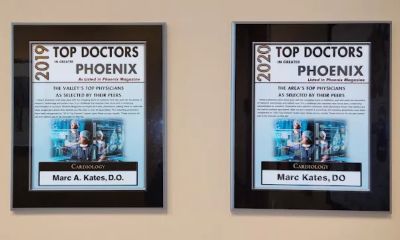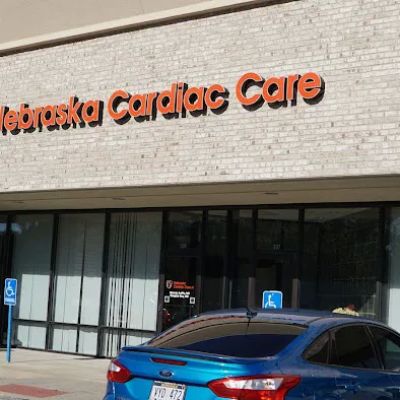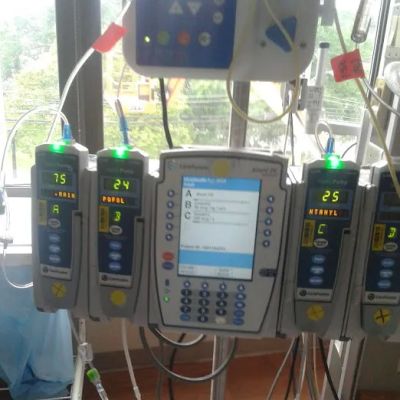Heart Disease and Cardiac Stress Test: How They Are Connected
- 1. Understanding Heart Disease
- 2. The Importance of Diagnostic Tests in Heart Disease
- 3. What Is a Cardiac Stress Test?
- 4. How Cardiac Stress Tests Help Diagnose Heart Disease
- 5. Types of Cardiac Stress Tests
- 6. Preparing for a Cardiac Stress Test
- 7. What to Expect After a Cardiac Stress Test
1. Understanding Heart Disease
Heart disease, also known as cardiovascular disease, refers to a wide range of conditions that affect the heart and blood vessels. It includes conditions like coronary artery disease (plaque buildup in the heart's arteries), heart attacks, arrhythmias (irregular heartbeats), and heart failure. According to the Centers for Disease Control and Prevention (CDC), heart disease remains the leading cause of death in the United States, claiming more lives annually than any other condition.
The key risk factors for heart disease include high blood pressure, high cholesterol, smoking, poor diet, physical inactivity, and family history. Recognizing the symptoms of heart disease and seeking early diagnosis is crucial in preventing severe complications, such as heart attacks or stroke. One of the primary tools doctors use for diagnosing heart disease is the cardiac stress test.
2. The Importance of Diagnostic Tests in Heart Disease
Early detection of heart disease can be a game changer. Regular check-ups and diagnostic tests help physicians identify potential issues before they become severe, enabling them to recommend preventive measures or treatments. Diagnostic tests, such as blood tests, ECGs, echocardiograms, and cardiac stress tests, give doctors valuable insights into the health of the heart and the blood vessels.
Cardiac stress tests, in particular, are crucial for understanding how well the heart functions under physical stress. They simulate the conditions of exercise to see how the heart responds to increased activity. This is particularly helpful for diagnosing issues like coronary artery disease or arrhythmias, which may not be noticeable when the body is at rest.
3. What Is a Cardiac Stress Test?
A cardiac stress test, also known as an exercise stress test or treadmill test, is a diagnostic tool used to measure the heart's response to physical stress. During the test, a patient is asked to walk on a treadmill or pedal a stationary bike while the heart rate, blood pressure, and ECG (electrocardiogram) are monitored. The intensity of the exercise is gradually increased to challenge the heart, and the goal is to assess how the heart performs under stress and whether it shows any signs of irregularities or insufficient blood flow.
The test helps doctors identify issues such as blockages in the arteries, abnormal heart rhythms, and weak heart muscle. It is typically used for individuals who have symptoms like chest pain, shortness of breath, or unexplained fatigue, as well as for those at high risk for heart disease due to other factors like family history or lifestyle habits.
4. How Cardiac Stress Tests Help Diagnose Heart Disease
Cardiac stress tests are a vital tool in diagnosing heart disease because they allow doctors to see how well the heart performs under stress, which can reveal problems that might not be apparent when the body is at rest. Here’s how stress tests help with the diagnosis:

4.1. Identifying Blockages in the Arteries
If the heart is not getting enough oxygen-rich blood due to blockages in the coronary arteries, the stress test can reveal areas of the heart that aren't performing as they should. When blood flow is restricted, it can lead to chest pain or discomfort (angina), which is often detected during the test. If left untreated, these blockages can lead to heart attacks.
Cardiac Solutions
cardiac solutions
5651 W Talavi Blvd, Glendale, AZ 85306, USA

4.2. Diagnosing Arrhythmias
Another key benefit of a cardiac stress test is its ability to detect arrhythmias, or abnormal heart rhythms. These irregularities may only occur during physical activity, making the stress test a crucial diagnostic tool for identifying arrhythmias that are not visible during a routine ECG.
4.3. Assessing Heart Function
The test can also help doctors assess how well the heart is functioning overall. If the heart has difficulty pumping blood during the stress test, it may indicate weakened heart muscle or heart failure. This information can guide doctors in developing an appropriate treatment plan, including medications or lifestyle changes.
5. Types of Cardiac Stress Tests
There are several different types of cardiac stress tests, each suited for specific conditions or patient needs. Here are the most common ones:
5.1. Exercise Stress Test
The most common type of stress test involves walking on a treadmill or pedaling a stationary bike. The intensity of the exercise is gradually increased, while the heart rate and ECG are monitored. This test is ideal for patients who are physically capable of exercising and allows the doctor to monitor how the heart responds to increased activity.
5.2. Stress Echocardiogram
A stress echocardiogram combines an exercise stress test with an ultrasound of the heart. This type of test provides a more detailed view of the heart’s structure and function, helping to identify issues such as poor heart muscle contraction or damage to the heart’s valves.
5.3. Nuclear Stress Test
A nuclear stress test uses a small amount of radioactive dye to help doctors assess blood flow to the heart during exercise. This test is often used if the doctor suspects coronary artery disease and needs to get a clearer image of the heart's blood flow and oxygenation.
5.4. Pharmacologic Stress Test
For individuals who cannot exercise due to physical limitations, a pharmacologic stress test may be performed. In this test, medication is used to stimulate the heart and mimic the effects of exercise, allowing doctors to monitor the heart’s response without requiring physical exertion.
6. Preparing for a Cardiac Stress Test
Preparing for a cardiac stress test typically involves several important steps to ensure the test is as accurate and effective as possible:
6.1. Inform Your Doctor of Your Health History
Before the test, be sure to inform your doctor about any medical conditions, medications, or allergies you have. Certain medications may need to be temporarily adjusted or stopped before the test to ensure accurate results.
6.2. Wear Comfortable Clothing
Wear loose, comfortable clothing and shoes suitable for exercise, as you will need to walk or pedal during the test. If you're undergoing a nuclear stress test, you may be asked to avoid certain foods and drinks for a few hours before the procedure.
6.3. Follow Pre-Test Instructions
Your doctor will provide you with specific instructions regarding food, drink, and medications to take before the test. It’s important to follow these instructions closely to ensure the best results.
7. What to Expect After a Cardiac Stress Test
After your cardiac stress test, your doctor will review the results and discuss any findings. If the test shows signs of heart disease, further testing or treatment may be required, such as additional imaging or lifestyle changes. In most cases, if the test results are normal, you may be able to resume your regular activities without any restrictions.
It’s important to follow up with your doctor to discuss the results, especially if you’ve experienced any unusual symptoms like chest pain or shortness of breath. The results of a cardiac stress test can help guide treatment decisions and give you a clearer understanding of your heart health.
In conclusion, a cardiac stress test is an essential diagnostic tool for detecting heart disease, assessing heart function, and diagnosing arrhythmias. By understanding how the test works and what to expect, you can be better prepared for the process and take proactive steps in maintaining a healthy heart. For more information and expert advice on heart health, visit HeartCare Hub, where you can find the best services and products to support your cardiovascular well-being.





















Deborah Heart and Lung Center
deborah heart and lung center
200 Trenton Rd, Browns Mills, NJ 08015, USA